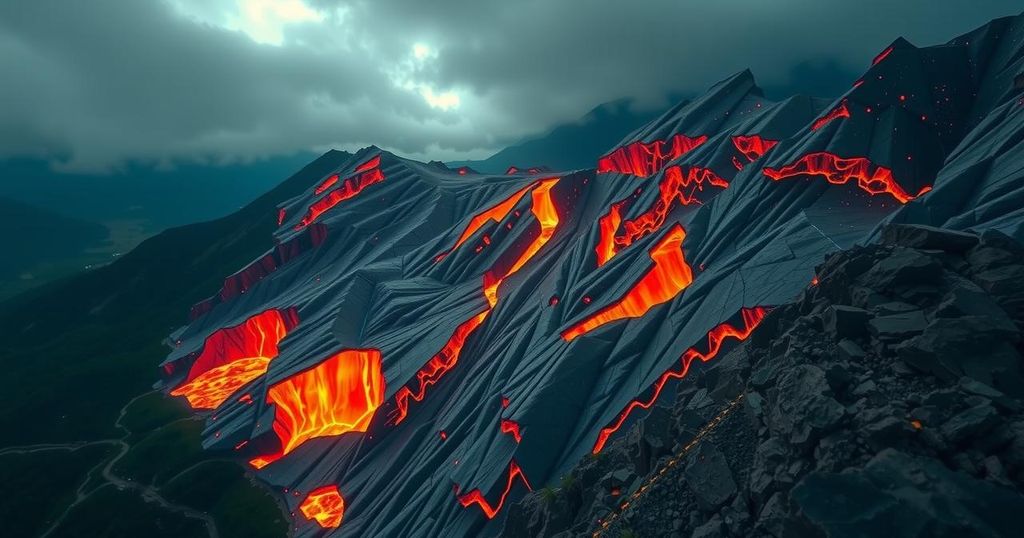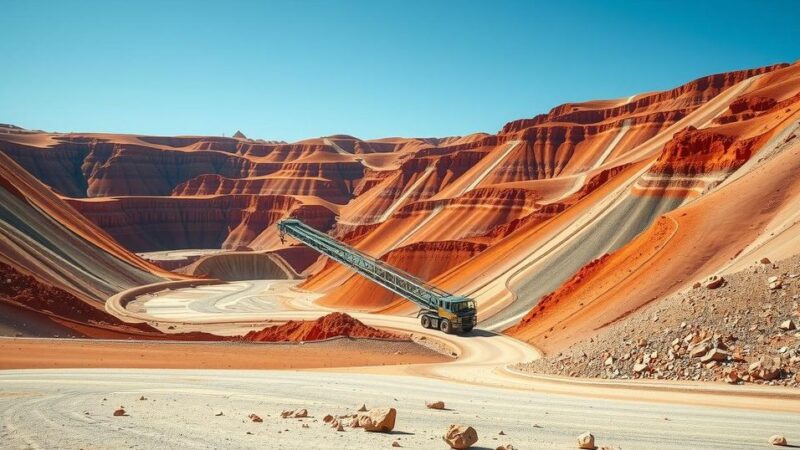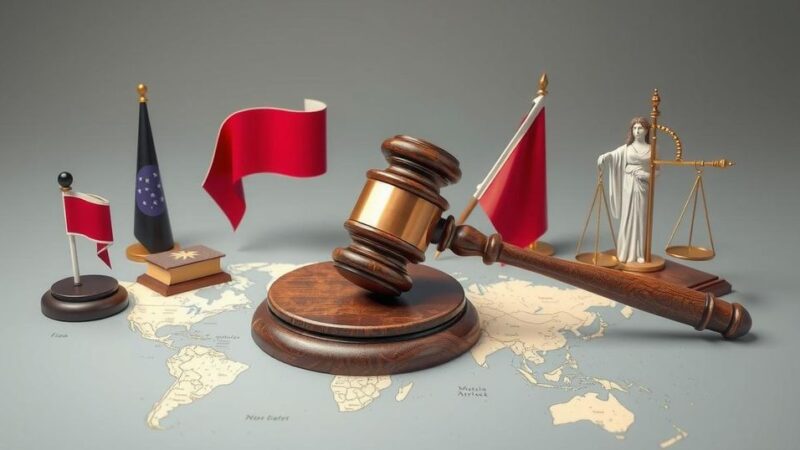A mountain collapse in the Democratic Republic of Congo uncovered substantial copper reserves, prompting online discussions about colonialism and calls to protect these resources from foreign exploitation, particularly from Britain and other Western nations.
A recent mountain collapse in the Democratic Republic of Congo has unveiled significant copper reserves, reigniting discussions surrounding colonial legacies and foreign exploitation of natural resources. Footage of the incident, which took place in the mineral-rich Katanga region, has circulated widely on social media, provoking a mix of astonishment and humor regarding the need to safeguard these valuable resources from international interests. As onlookers witnessed the collapse, reactions online reflected a strong sentiment against foreign intervention, especially from Western countries.
The Democratic Republic of Congo possesses substantial mineral wealth, particularly high-grade copper located in the Katanga area, known as the Central African Copperbelt. This region is crucial for global copper supply, especially with rising demand driven by renewable energy and electric vehicle industries. The country’s copper reserves are intertwined with broader discussions of colonialism, highlighting historical injustices and current exploitation risks.
The mountain collapse in the Democratic Republic of Congo has not only revealed vast copper reserves but has also sparked crucial conversations about the management of the nation’s resources in the context of historical exploitation. With the international community eyeing these reserves, the call for protective measures against foreign exploitation reflects a broader desire for national sovereignty and respect for local ownership of natural wealth.
Original Source: www.hindustantimes.com







